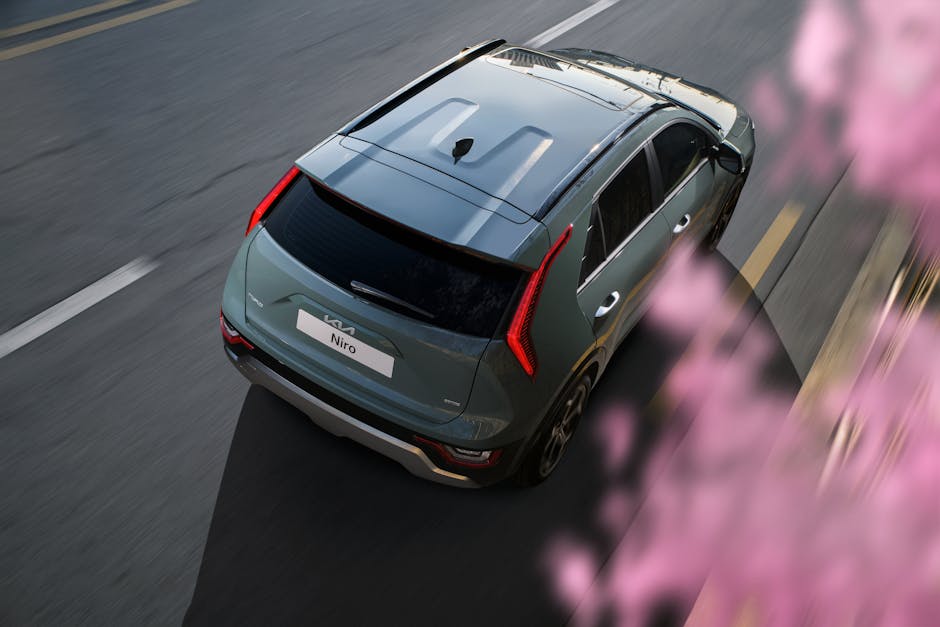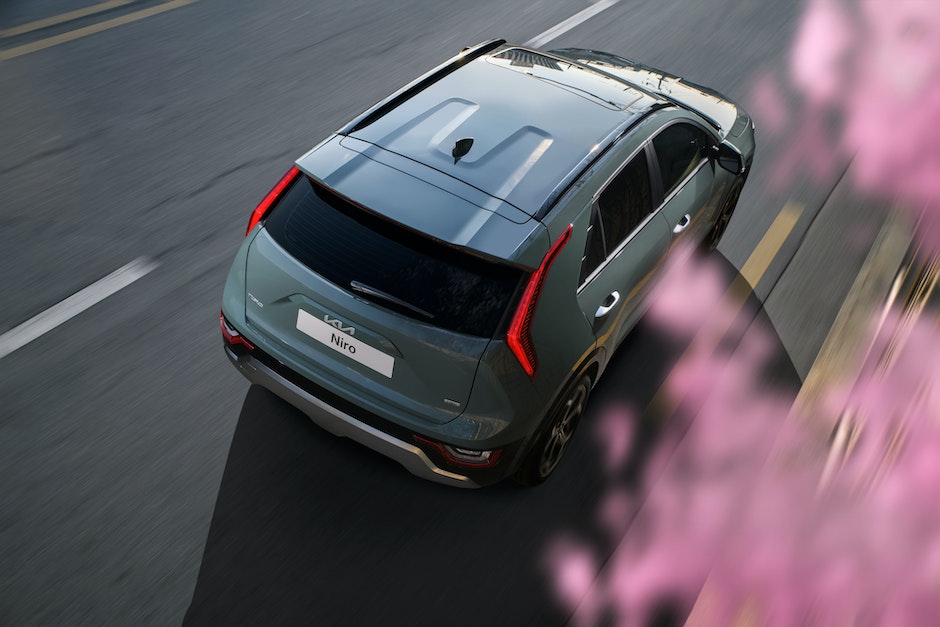Are you a teenage driver looking for advice on how to stay safe, save money, and get the most out of your car? Look no further! In this blog post, you will discover powerful automotive tips specifically tailored for teenage drivers. From how to properly maintain your vehicle to budgeting for fuel costs, you’ll learn everything you need to know about being a safe and savvy teenage driver. Keep reading to find out more!

Driving Skills: What Teenagers Need to Know
There are a few basic driving skills that teenagers need to know in order to stay safe on the road. These include knowing how to change gears, drive defensively, and handle heavy traffic. Teenagers also need to be aware of vehicle maintenance and safety checks that should be performed on a regular basis. Learning about these matters will help keep them safe while behind the wheel.

Understanding Vehicle Maintenance and Safety Checks
It’s important for teenage drivers to understand the importance of regular vehicle maintenance and safety checks. Keeping your car in good condition will help you avoid costly repairs and keep you safe on the road.
Regular maintenance includes checking fluid levels, replacing air filters, and checking tire pressure. Safety checks include checking for oil leaks, inspecting brakes, and testing headlights and taillights.
Always consult your car’s owner’s manual for specific instructions on how to perform these checks. In addition, be sure to ask your mechanic or dealership about any recommended maintenance or safety procedures.
Keep in mind that not all repairs require professional assistance. Many minor repairs can be done by a teenager himself or herself with the right tools and knowledge. For example, a teenager can replace a air filter without taking the car to a mechanic.
Here are some other tips for keeping your car in good condition:
- Wash your car regularly using a gentle car wash solution and a soft cloth. Be sure to remove all the wax and polish from your car’s exterior surfaces.
- Avoid using harsh chemicals or abrasives on your car’s exterior surfaces. These chemicals can damage the paintwork and surface materials.
- Avoid leaving your car parked in direct sunlight or in hot weather conditions. Excessive heat can damage plastic components in your car.
- Check the fluid levels in your car’s engine, transmission, and drivetrain regularly. Over time, these fluids can become contaminated and cause problems with your car’s performance.
Making Smart Decisions About Insurance Coverage
When choosing a vehicle for a teenager, it is important to consider their driving skills and the needs of the vehicle. A sedan or station wagon may be best for a beginner driver because they are easier to control and have more cargo space. However, there are also many other types of vehicles that can accommodate teen drivers, including SUVs and sports cars. When selecting a car, take into account factors like safety ratings, fuel efficiency, value for money and how the car handles on the road. It is also important to talk to your teenager about responsible driving habits and make sure they understand what activities are prohibited while behind the wheel.
Selecting the Right Vehicle for a Teen Driver
For teenage drivers, there are several considerations to make when selecting their vehicle. Factors such as the size of the car, engine type and fuel efficiency all need to be taken into account. Additionally, teens should think about whether or not they will need extra space for passengers or gear in the future.
So what types of cars is a teenager likely to want? Likely candidates include subcompacts, compact SUVs and coupes. Teenagers who plan on carrying a lot of gear or people may prefer a larger car, while those with less athletic aspirations may be better off with a smaller car. When making the purchase decision though, it is important to consult with an experienced advisor so that important factors like price and fuel economy can be considered

Cost-Effective Upgrades for Increased Performance and Fuel Efficiency
One of the most important things a parent can do to help their teenage driver is to provide them with the best possible driving education. Teens need to be aware of the basics of the driving process, such as how to handle different types of roads and traffic, as well as how to stay safe while behind the wheel. Parents can also help their teens learn defensive driving techniques, which will help them avoid accidents.
Strategies to Deal With Distractions on the Road
When it comes to highway traffic, the more distractions teens have, the greater their risk of getting in an accident. Here are some tips for keeping your teen safe when driving:
- Make sure your teen has a full set of car insurance and driver’s license. Teenagers may be less experienced with driving and be less cautious than older drivers, so it’s important to have comprehensive coverage.
- Teach your teen defensive driving techniques such as dykekeeping and staying within the speed limit. These skills will help him stay safe on the open road no matter what he’s doing.
- Limit distractions while your teen is driving, especially if he’s using his cell phone or listening to music through headphones. Keep conversations short and focused on the road ahead, and avoid eating or drinking while in traffic – these activities can make you drowsy.
- Let other motorists know that your teen is behind the wheel by wearing a safety belt properly and having proper identification displayed (like a driver’s license). Be Tactful: It’s important not to overreact to people who invade your teenager’s privacy by asking too many questions or making too much noise while he’s driving!

Guiding Your Teen Through Defensive Driving Techniques
When it comes to navigating heavy traffic conditions, it’s important to keep a few things in mind. For one, always use caution when approaching intersections. Make sure you know the traffic signal timing and configurations in your area so that you can avoid getting caught in a frustrating situation. Also, be aware of potential hazards on the road – such as pedestrians and animals crossing the path in front of your car – and take appropriate precautions to avoid them. Lastly, don’t let yourself become chained to your wheel; take regular breaks if you need them to stay alert and focused on the road ahead.
Tips for Navigating Heavy Traffic Conditions Safely
When you’re driving with a teenager, it’s important to keep in mind their age and inexperience. Here are some tips to help you do just that:
-
Make sure you’re both aware of the limits of your teen’s driving skills. Let them know when they’re doing something that’s unsafe or beyond their level of experience.
-
Make sure you’re providing adequate supervision while they’re driving. Teenagers need guidance and direction when it comes to driving, but they also need time to learn on their own. Be patient and allow them room to make mistakes.
-
Keep the conversation focused on safe driving practices. Avoid discussing politics, religion, or other controversial topics while your teen is behind the wheel. Stick to basics like safe speed limits and avoiding collisions.
-
Set clear expectations for your teen’s driving behavior. Let them know what is expected of them while they’re behind the wheel, and be consistent in your enforcement of those rules.
-
Teach your teen about defensive driving techniques. This will help them avoid accidents and stay safe on the road. Topics covered may include: how to stay calm in difficult situations, how to react if they’re pulled over, and how to avoid getting into accidents in the first place.
Teenagers face unique pressures when driving and it is essential that they learn the necessary skills to make sure they stay safe on the road. With these powerful automotive tips for teenage drivers, young people can become more confident in their own abilities and have the guidance needed to drive safely, responsibly and cost-effectively. By staying informed about vehicle maintenance needs, understanding insurance coverage options, selecting an appropriate car for a teen driver and implementing defensive driving techniques, teenagers can gain valuable insight into navigating today’s roads confidently.

